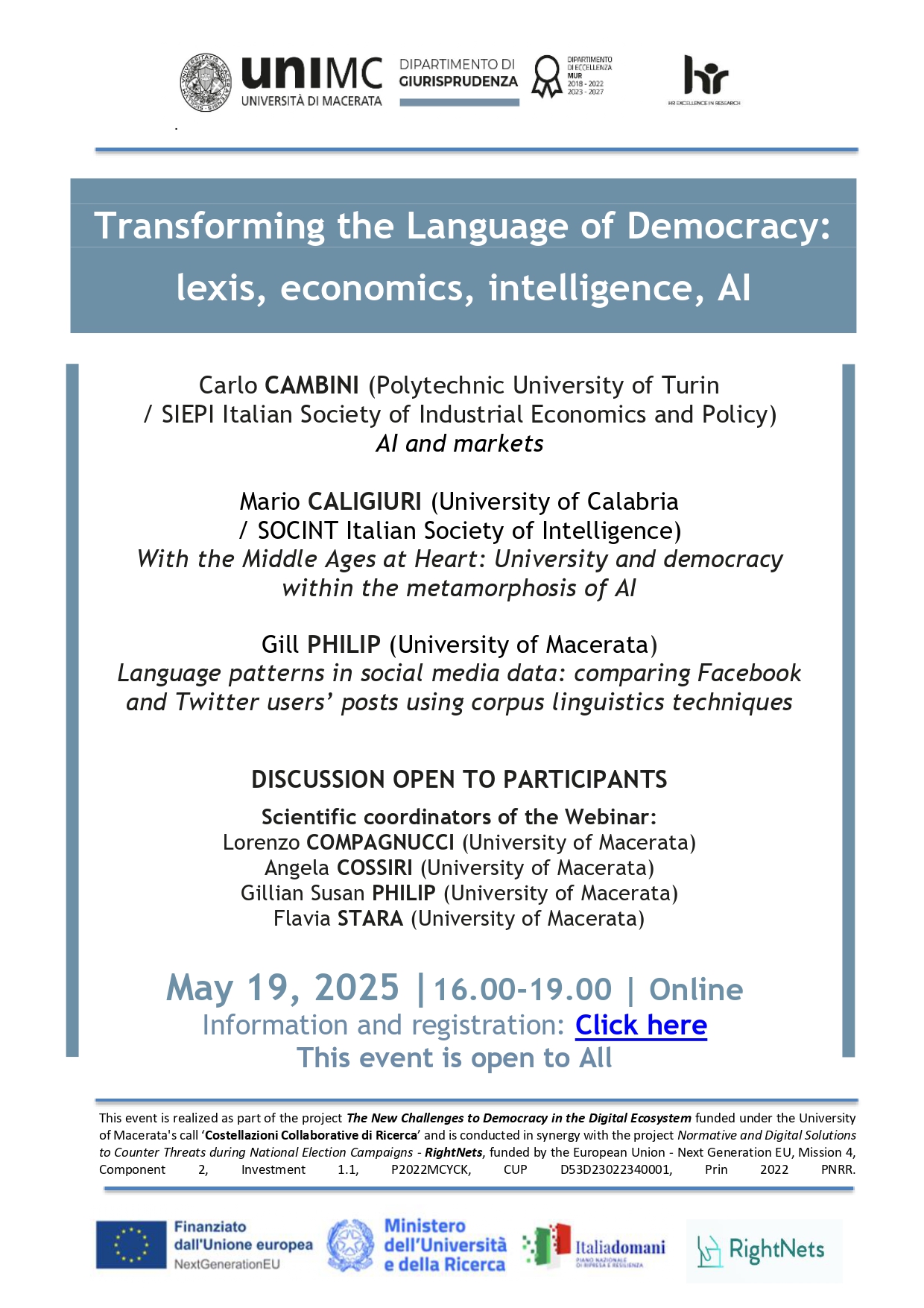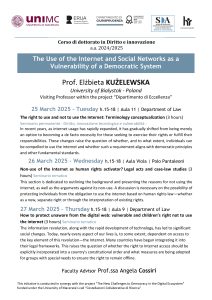The project
“The New Challenges to Democracy in the Digital Ecosystem,” funded under the University of Macerata’s Call for Proposals for the funding of “Collaborative Research Constellations” (CCRs), is complementary to RightNets in addressing challenges arising from the role of the internet in political communication, particularly with regard to extra-EU interference that can manipulate public discourse
Defense of democracy
The project explores new EU measures for defending democracy and election integrity.
Identify interference
The project uses AI-analyzed anonymized data to address third-country election interference.
Collaborative project
Eight universities collaborate to propose EU-wide solutions for online political threats.
On the occasion of the 2024 European elections, the Commission adopted a “package for the defense of democracy” to promote free and fair elections, encourage citizen participation, and counter third-country interference. Similar priorities are pursued by the EU regulation on transparency in political advertising, approved in February 2024. The changes reflect the changing international framework and the role of the internet in political communication, highlighting vulnerabilities of democracies to non-EU interference that can manipulate public discourse. The research will address these challenges with an innovative method: anonymized data from online political debate will be selected by data scientists with Artificial Intelligence, based on questions formulated by social scientists. The results will be collectively analyzed to propose reflections and replicable solutions at the European level. Scholars from eight international universities will participate, creating a network of researchers already individually active on the topic.
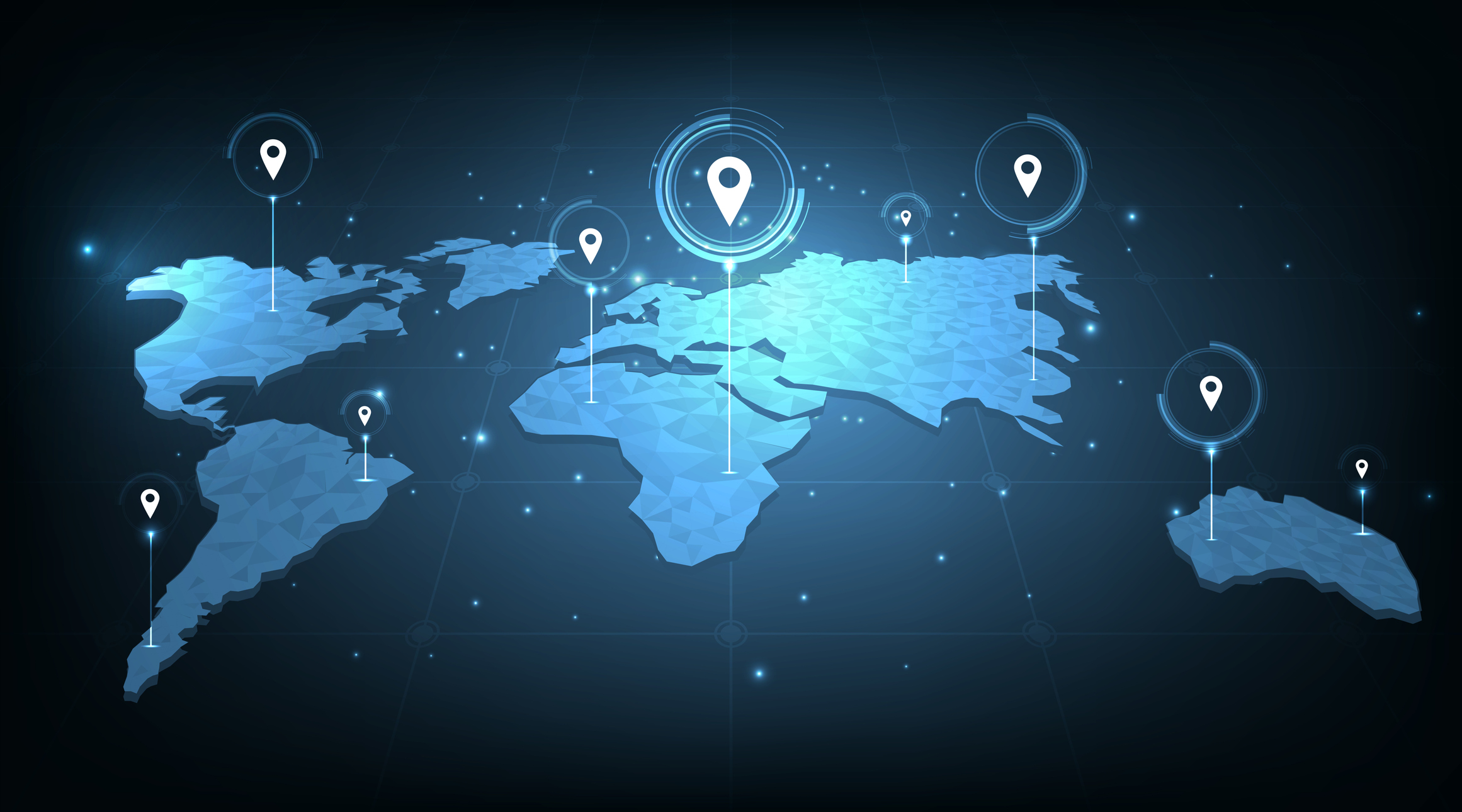
The Team
The research team is distinguished by high internationalization, involving scholars from eight international universities. The team is also characterized by a very high degree of multidisciplinarity, complemented by an interdisciplinary working method. The group combines expertise in legal sciences, with a focus on regulatory strategies for online election campaigns, and in historical, philosophical, and psychological sciences, where the ethical and cognitive implications of digital manipulation are analyzed. It also includes experts in information engineering, engaged in the analysis of online content, political and social sciences, for the study of the polarization of public discourse, as well as specialists in linguistics and economics, to investigate respectively the language of political communication and the economic factors governing the relationship between institutions, platforms and citizens.
The team includes the following researchers:
| Giovanni Di Cosimo | Costitutional Law | University of Macerata |
| Angela Cossiri | Costitutional Law | University of Macerata |
| Edoardo Caterina | Costitutional Law | University of Macerata |
| Giacomo Menegus | Costitutional Law | University of Macerata |
| Simona Mochi | Costitutional Law | University of Macerata |
| Claudia Pennacchietti | Costitutional Law | University of Macerata |
| Ninfa Contigiani | History of medieval and modern law | University of Macerata |
| Luigi Lacchè | History of medieval and modern law | University of Macerata |
| Laura Corona | Moral philosophy | University of Macerata |
| Benedetta Giovanola | Moral philosophy | University of Macerata |
| Selena Grimaldi | Political science | University of Macerata |
| Ermanno Petrocchi | Moral philosophy | University of Macerata |
| Flavia Stara | Philosophy of education | University of Macerata |
| Simona Tiribelli | Filosofia morale | University of Macerata |
| Angelo Ventrone | Contemporary history | University of Macerata |
| Emanuele Frontoni | Information processing systems | University of Macerata |
| Giovanna Migliorelli | Information processing systems | University of Macerata |
| Gill Philip | Language and translation | University of Macerata |
| Lorenzo Compagnucci | Applied economics | University of Macerata |
| María Jesús García Morales | Costitutional Law | Universitat Autònoma de Barcelona (ES) |
| Elżbieta Kużelewska | Political science | Faculty of Law, University of Bialystok (PL) |
| Iryna Sofinska | Costitutional Law | Institute of Law, Psychology, and Innovative Education, Lviv Polytechnic National University (UA) |
| Norbert Merkovity | Political science | Faculty of Law and Political Science, University of Szeged (HU) |
| Thomas Poguntke | Comparative politics | Party Research Institute, Heinrich Hein University Düsseldorf (DE) |
| Giorgia Tiscini | Psychology and clinical psychopathology | Département de Psychologie, Université Rennes 2 (FR) |
| Luciana Duranti | Archival science and diplomatics | School of Information, University of British Columbia (CA) |
| Maria Eugenia Bartoloni | European Union law | University of Campania L. Vanvitelli (IT) |
| Francesco Bilancia | Public law | La Sapienza University of Rome (IT) |
| Fabio Galasso | Information processing systems | Department of Computer Science, La Sapienza University of Rome (IT) |
| Christian Morbidoni | Information processing systems | Department of Business Administration, University of Chieti Pescara (IT) |
Events
- Lecture by Prof. Innerarity
AI and Democracy
+++The event has been postponed to a date to be determined+++
Date: 4th February 2026
When: 3 pm
Where: Macerata, Loggia del grano (via Don Minzoni 22/A), Aula 1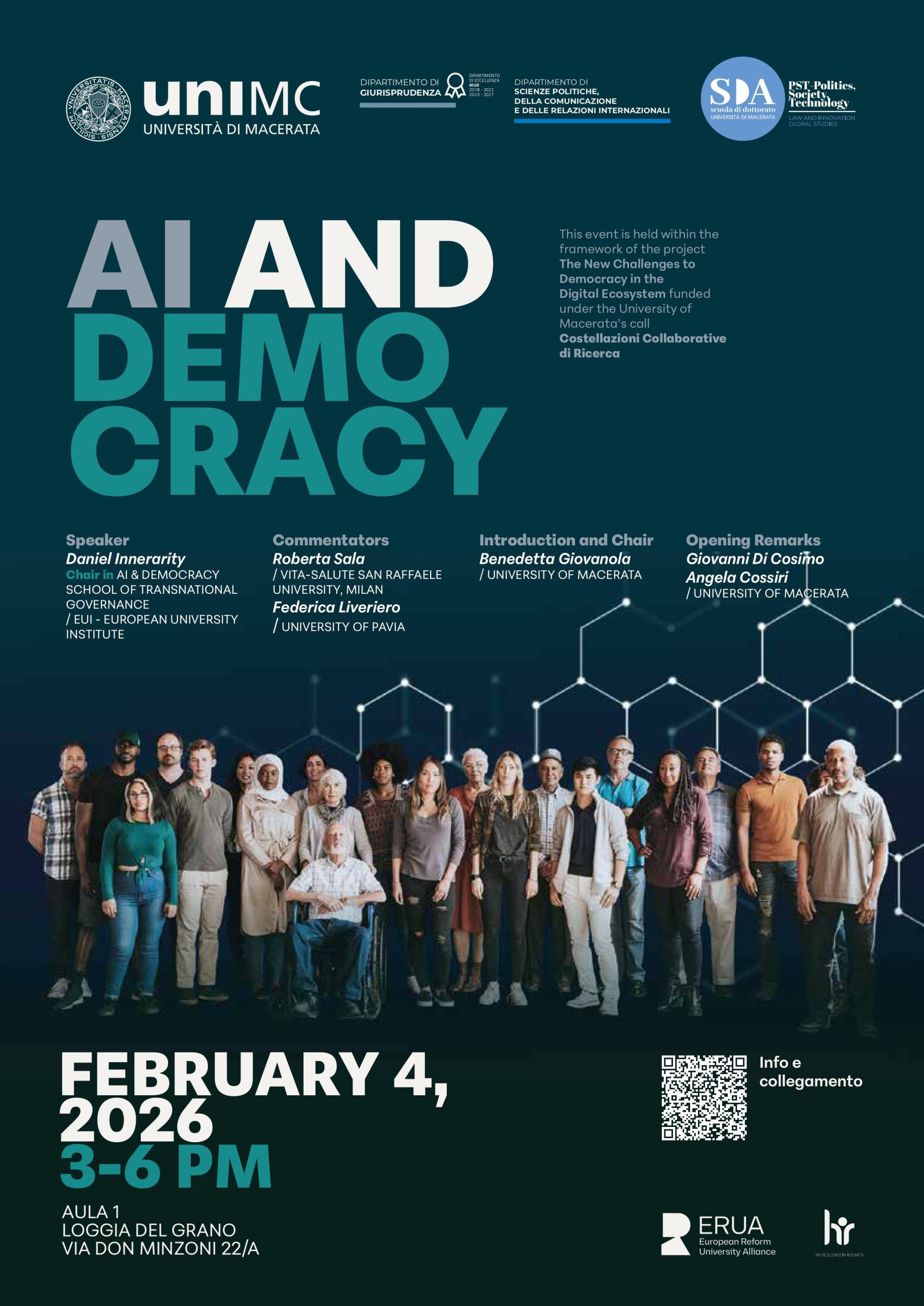
- Instant Seminar – 14/10/2025
Le elezioni regionali nelle Marche: un dialogo con i protagonisti
Date: 14th October 2025
When: 1 pm
Where: Macerata, Dipartimento di Giurisprudenza, Aula 2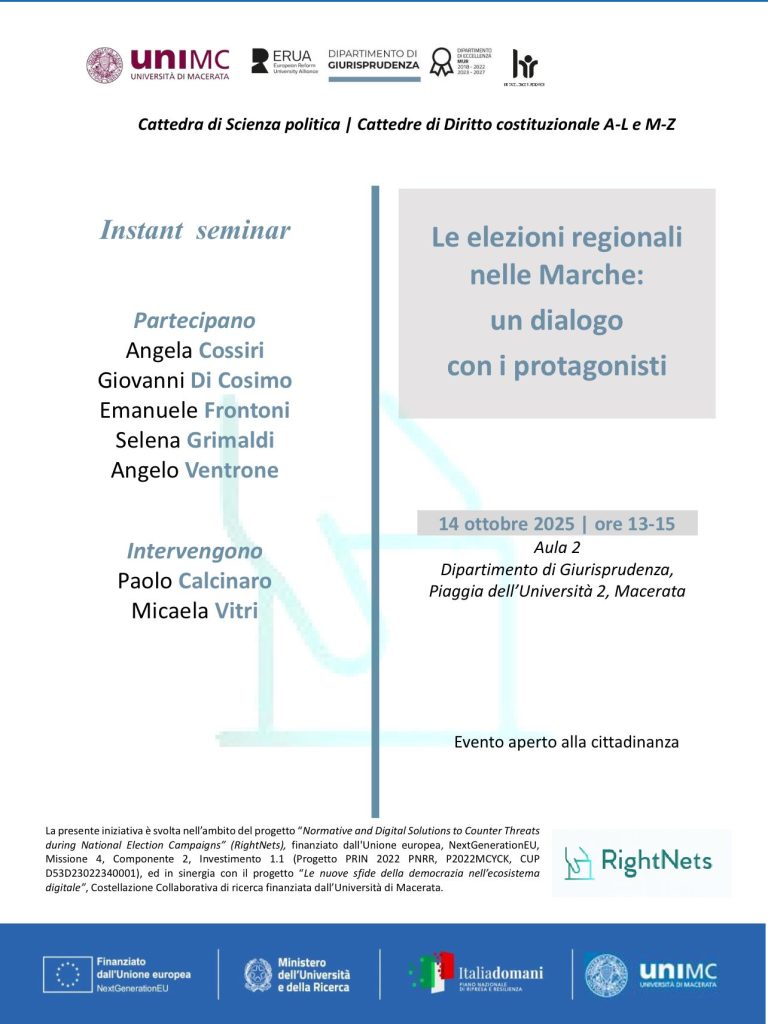
- Workshop – 19/05/2025
“Transforming the Language of Democracy: lexis, economics, intelligence, AI”
Date: 19th May 2025
Time: 4.00 pm
Where: Online - Seminars – 25-26-27/03/2025

